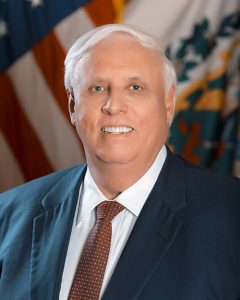CHARLESTON W.Va. (WVDN) — The West Virginia Attorney General’s Solicitor General Division has won a 2025 Supreme Court Best Brief Award from the National Association of Attorneys General (NAAG).
Alongside former Solicitor General Lindsay See, current Solicitor General Michael R. Williams filed an amicus brief with the U.S. Supreme Court to hear the case Consumers Research v. FCC. Amicus curiae briefs, Latin for “friend of the court,” allow states and organizations to weigh in on cases that affect them, even if they’re not the main parties involved.
At issue in Consumers Research was whether Congress could give the Federal Communications Commission (FCC) the power to collect Universal Service Fund fees without providing more specific standards to guide its decision making. The case also considered whether the FCC inappropriately gave at least some of that power to a private company that operates without public accountability.
“The attorneys in our Solicitor General Division are second to none. Michael Williams has done exceptional work on not only this brief, but on every case he is part of. Michael’s ability to take complex constitutional issues and explain them in common sense terms is second to none. His meticulous attention to both the legal precedents and the real-world consequences of unchecked federal agency power reflects the caliber of legal talent West Virginia brings to important constitutional questions. I am extremely proud he is part of our team and happy to see his work being recognized on a national scale by NAAG,” Attorney General McCuskey said.
The Best Brief Awards are presented annually in recognition of excellence in brief writing in the U.S. Supreme Court. The awards honor appellate lawyers from state attorneys general offices who collectively handle more Supreme Court cases than nearly anyone else in the legal community.
Winners were selected by an independent panel of Supreme Court experts, each of whom are a leader in the Supreme Court bar.
“The four winning briefs exemplify the superb work the state attorney general offices are submitting to the Supreme Court,” said Dan Schweitzer, chief counsel of the NAAG Center for Supreme Court Advocacy. “They will also serve as models for how to prepare first-rate merits and amicus briefs.”
NAAG has honored legal practitioners from state attorneys general offices since the 1992 Supreme Court term.
















